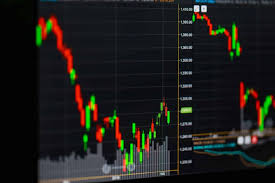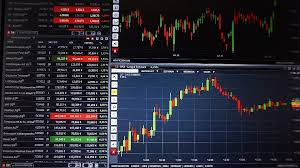
The forex market is one of the largest and most lucrative financial markets in the world. With daily trading volumes exceeding $6 trillion, it offers numerous career opportunities for those interested in finance, economics, and trading strategies. Whether you are a seasoned trader or a newcomer fascinated by currency fluctuations, there are various paths available in the realm of forex trading. In this article, we will explore the different jobs within the forex industry, the skills required, and how to embark on a successful career. For additional resources and insights, you can also visit forex trading jobs trading-asia.com.
Understanding Forex Trading Jobs
Forex trading jobs can broadly be classified into two categories: proprietary trading firms and retail trading. Each offers unique experiences, challenges, and opportunities. Below, we delve into the types of forex jobs available and the requisite qualifications.
1. Forex Trader
A forex trader buys and sells currency pairs based on market analysis and predictions of currency movements. Traders often work for banks, hedge funds, proprietary trading firms, or trade independently. They analyze market trends, employ technical and fundamental analysis, and utilize various trading strategies to maximize profits.
Skills Required:
- Strong analytical skills
- Understanding of economic indicators
- Risk management abilities
- Emotional discipline and mental resilience
- Experience with trading platforms and tools
2. Forex Analyst
Forex analysts provide insights and recommendations based on their research and understanding of the forex market. They may work for financial institutions, brokerages, or as independent consultants. Analysts conduct extensive research, prepare reports, and outline market trends that can influence trading decisions.
Skills Required:
- Proficiency in data analysis and interpretation
- Strong writing and communication skills
- Knowledge of economic and market factors
- Ability to present findings clearly
- Familiarity with technical analysis tools
3. Forex Broker

Forex brokers play a crucial role in connecting traders to the forex market. They provide necessary tools and platforms for traders to execute their trades. Brokers can be part of large financial institutions or operate independently. They may also offer educational resources and support to help traders succeed.
Skills Required:
- Excellent customer service and communication skills
- In-depth knowledge of trading platforms
- Regulatory knowledge and compliance understanding
- Ability to manage client relationships
- Strong sales and marketing competencies
4. Risk Manager
Risk managers identify, assess, and mitigate risks associated with forex trading activities. Their primary goal is to protect the trading firm’s capital while maximizing returns. Risk managers work closely with traders and analysts to develop risk management strategies and ensure compliance with regulations.
Skills Required:
- Strong analytical and quantitative skills
- Understanding of risk management frameworks
- Knowledge of financial regulations
- Ability to develop risk assessment models
- Effective communication and collaboration skills
5. Compliance Officer
In the highly regulated environment of forex trading, compliance officers are essential to ensure that all trading activities adhere to local and international regulations. They monitor transactions, conduct audits, and implement compliance training programs to minimize legal risks.
Skills Required:
- In-depth knowledge of financial regulations
- Strong investigative skills
- Attention to detail
- Ability to develop compliance policies and procedures
- Effective communication skills
How to Get Started in Forex Trading

Begin your journey in forex trading by acquiring the necessary education and training. Here are some steps to consider:
1. Educational Foundation
Many successful forex professionals have backgrounds in finance, economics, or business. Consider enrolling in a degree program that provides a solid foundation in financial principles and analysis. Additionally, online courses and certifications in forex trading and analysis can enhance your knowledge.
2. Gain Experience
Hands-on experience is invaluable in the forex market. Start by practicing on demo trading accounts provided by many trading platforms. This allows you to develop and test your trading strategies without risking real money. Once you feel confident, consider trading with a small initial investment or joining a trading firm for mentorship.
3. Network with Professionals
Networking can open doors to job opportunities and valuable insights within the industry. Attend forex trading seminars, webinars, and workshops. Join online forums and groups where traders share their experiences and strategies. Building relationships with established professionals can provide mentorship and guidance.
4. Stay Informed
The forex market is constantly evolving. Staying informed about economic news, geopolitical events, and market trends is crucial. Subscribe to finance-related news outlets, follow market analysis blogs, and engage with educational platforms to enhance your understanding of current market conditions.
5. Develop a Trading Plan
A well-structured trading plan is essential for effective trading. Include your trading goals, risk tolerance, strategy, and measures for performance evaluation in your plan. Continuously refine your plan based on your experiences and market behavior.
Conclusion
Embarking on a career in forex trading can be both challenging and rewarding. With a variety of roles available, aspiring professionals can find opportunities that suit their skills and interests. By honing your abilities, gaining experience, and networking within the industry, you can carve out a successful career in forex trading. Remember, continuous learning and adaptation are key to thriving in this dynamic market.